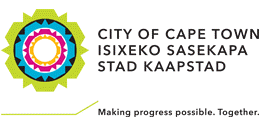9 JANUARY 2018
STATEMENT BY THE CITY’S EXECUTIVE MAYOR, PATRICIA DE LILLE
City secures bigger yield from aquifers but consumption still too high as Cape Town moves closer to Day Zero
Today I can announce that the recent groundwater survey has confirmed that the aquifers around Cape Town will deliver more water than expected.
At least 150 million litres of water per day will be delivered by the Cape Flats, Table Mountain Group and Atlantis aquifers.
These are the preliminary findings:
- The Cape Flats aquifer will deliver 80 million litres per day
- The Table Mountain Group aquifer will deliver 40 million litres per day
- The Atlantis aquifer will deliver 30 million litres per day
Prime locations were identified to abstract more water from these three aquifers. Drilling rigs will be moved onto sites from this week in the Cape Flats aquifer zone.
Importantly, this action to help Cape Town get through the drought is based on an environmentally sensitive approach that will ensure sustainable water abstraction, ensuring generations of Capetonians will benefit from this groundwater supply.
This is the first time such an extensive mapping has been done and will ensure responsible use of groundwater through, for instance, the water recharge of these aquifers.
The projects form part of the City’s programme to supply additional water from desalination, water recycling and groundwater abstraction.
On the back of these encouraging findings, I’d like to emphasise that, over the past month especially, the City has been reviewing our initial programme to make additional water available. It has been an intense effort to find ways to revise our plan to make bigger volumes of water available at a lower cost for the benefit of all of our residents.
A key change has been the greater emphasis on additional water from groundwater sources. We will therefore invest more money in groundwater abstraction.
This phase of the plan therefore focuses strongly on the aquifer projects, the desalination plants at Monwabisi, Strandfontein and the V&A Waterfront which are all on track and under way.
We need to raise money to pay for these projects and, more importantly, to maintain our water reticulation system. To do this, we have proposed the drought charge and invited public comment. We’ve received some 45 000 comments to date.
We have listened to our residents and have decided to extend the comment period to midnight on Monday 15 January 2018.
I want to take this opportunity to explain to Capetonians how we are proposing to fund these initial projects and our water services. It really is vital in our efforts to beat the drought and to afford protection to our most vulnerable residents.
Only 464 216 households out of a total of 707 814 households will be affected by the charge.
Of these, only 52 510 will pay more than R150 per month. The rest will pay less than this. The majority will pay less than R47 per month.
We remain committed to lessening the burden on our most vulnerable residents while at the same time ensuring that every Capetonian receives basic services.
HOLIDAY CONSUMPTION
Holiday consumption remained the same despite increased numbers of tourists. This was due to the normal in- and outflow of residents and tourists. I thank all of our visitors and locals for their efforts to continue to save water. We cannot do it without you.
But consumption remains too high with half of Cape Town’s residents still not keeping to the consumption limit of 87 litres of water per person per day. This means that Day Zero has moved forward by a week to 22 April 2018 from 29 April 2018.
Dam levels dipped below 30 percent during the first week on 2018, while Cape Town’s collective daily water consumption remains above the 500 million litres per day target.
The total storage has fallen by 1,3%. As of this week, dam levels stand at 29,7% and the City’s overall water usage is 578 million litres per day. Only about 19,7% of water remains usable as the last 10% of water is difficult to abstract from the dams.
Some encouraging news is that more Capetonians kept to the allocated consumption limit of 87 litres per person per day with 54% of our residents saving water. This compares well to only 37% of Cape Town’s residents saving water during the first weeks of December 2017.
The full dashboard can be viewed here: www.capetown.gov.za/dayzerodashboard
Level 6 water restrictions came into effect from 1 January 2018 and all households who use more than 10,5 kilolitres per month will have a water management device fitted. This is part of the City’s commitment to work with residents to avoid Day Zero.
Please see www.capetown.gov.za/thinkwater for more water-related information.
End
Issued by: Media Office, City of Cape Town
Media enquiries: Zara Nicholson, Spokesperson for the Executive Mayor – Patricia de Lille, City of Cape Town, Tel: 021 400 4998 or Cell: 079 416 5996, Email: zara.nicholson@capetown.gov.za


